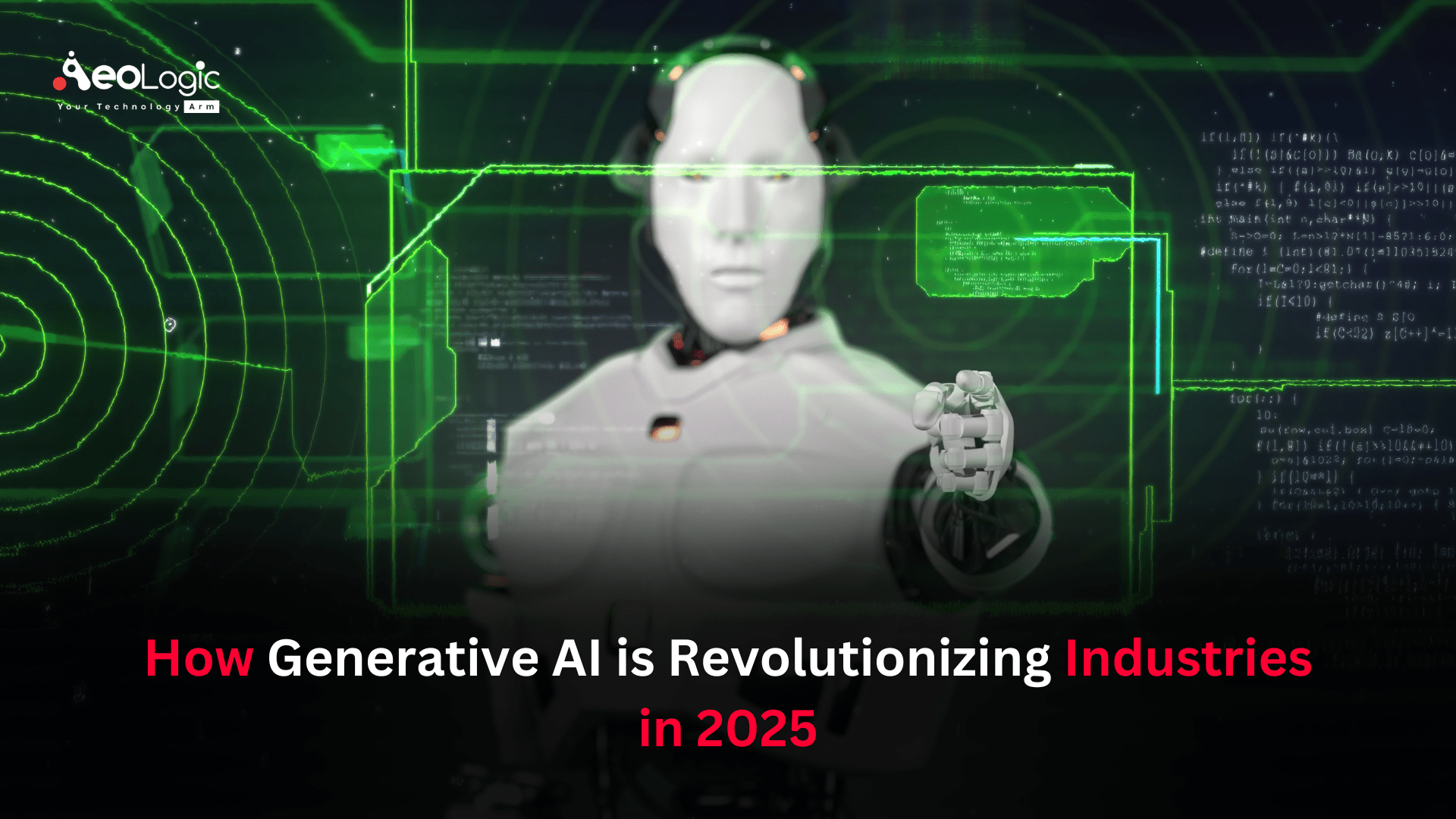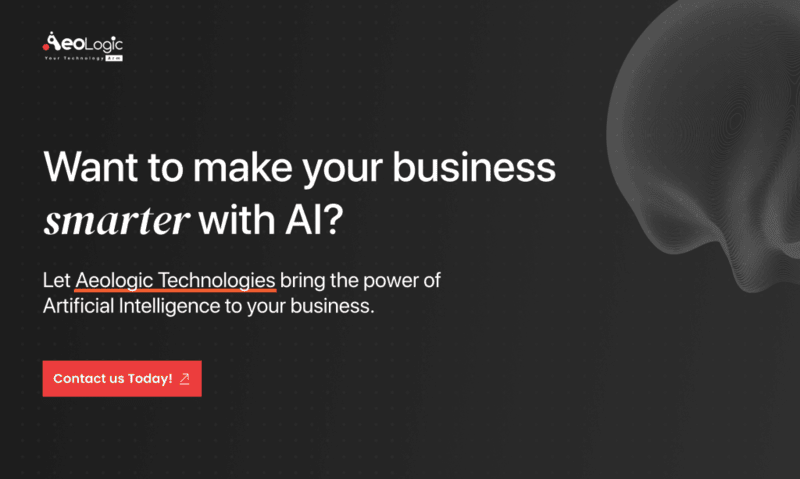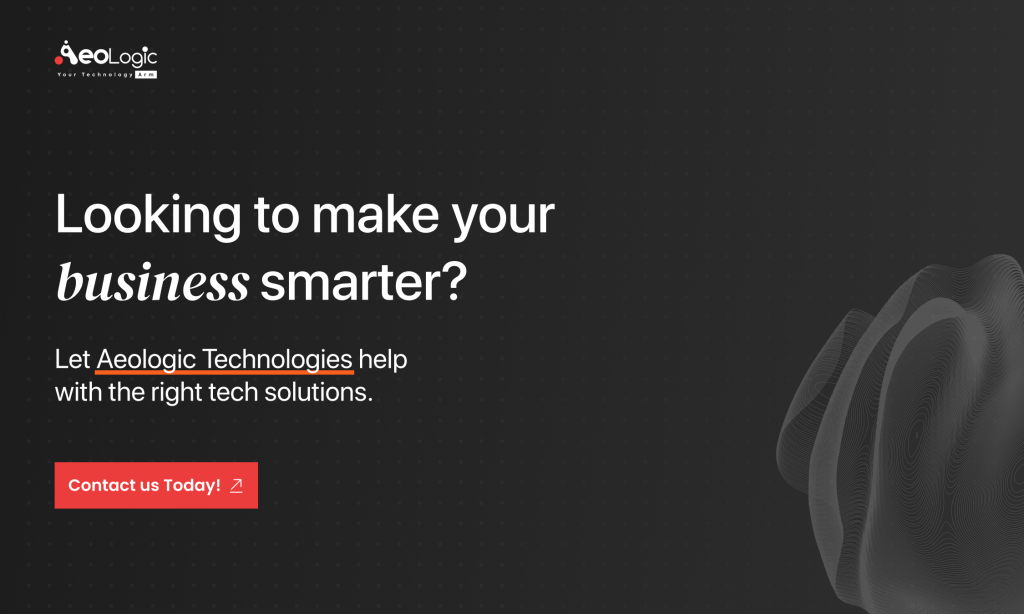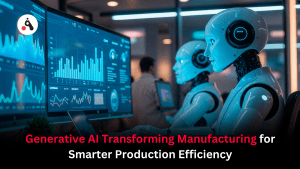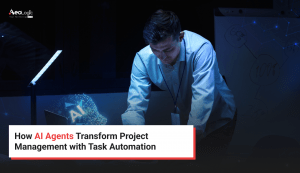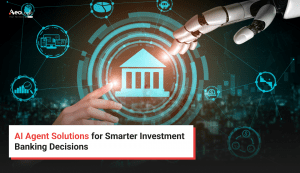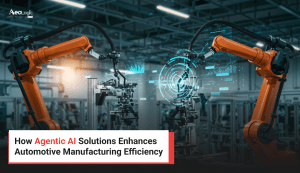Generative AI is one of the greatest developments in digital transformation that revolutionized various industries over the last few years. Generative AI is not different, as it is a type of AI that is trained on large datasets to identify and analyze patterns to create new content in the forms of audio, text, videos, graphics, animation, pictures, etc.
The market size in the generative AI market is projected to reach US$62.72bn in 2025. The market size is expected to show an annual growth rate (CAGR 2025-2030) of 41.53%, resulting in a market volume of US$356.10bn by 2030.
Overview
There are a lot of industries worldwide that are revolutionizing the generative AI potential in various aspects. The education industry is getting enhanced and advanced ways to make students learn faster; the medical industry gets benefits in drug discovery, personalized medicine, etc. The entertainment industry can create more realistic CGI, scriptwriting, scenes, music, art, games, etc. The manufacturing industry can establish a well-managed predictive maintenance and better supply chain management system, and the finance and banking industry can easily detect fraud and increase accuracy. Other industries like marketing, transportation, retail, etc., are getting many revolutionary benefits from the generative AI.
Statistics on generative AI are available that show its impact on different industries in the last year. Here are a few stats mentioned below.
-
- 70% of Gen Z report using technology, and 52% of them trust it to help them make informed decisions.
-
- 67% of IT leaders surveyed said they have prioritized generative AI for their business within the next 18 months.
-
- Seven in 10 marketers (71%) expect generative AI will help eliminate busy work and allow them to focus more on strategic work.
-
- 48% of service professionals said generative AI will improve customer self-service options.
-
- Two out of three (67%) say generative AI will help them get more out of other technology investments, like other AI and machine-learning models.
So we have seen many stats about generative AI and how it impacted various industries and various aspects till this initial month of 2025. As we move forward, we are going to see the role of generative AI revolutionize different industries in 2025. In the end, end the discussion with a few final words on behalf of the whole discussion.
What is Generative AI for Revolutionizing Industries in 2025?
Gen AI, to put it simply, is a subset of AI that can produce original ideas and material, such as dialogues, narratives, pictures, movies, and music. Gen AI’s capacity to use enormous volumes of data and forecast results has the potential to completely transform several sectors. AI has the potential to greatly enhance decision-making. In a variety of industries, it can save waste, improve product quality, and maximize output. There are many other benefits that we will see in the upcoming paragraph.
Top Applications of Generative AI
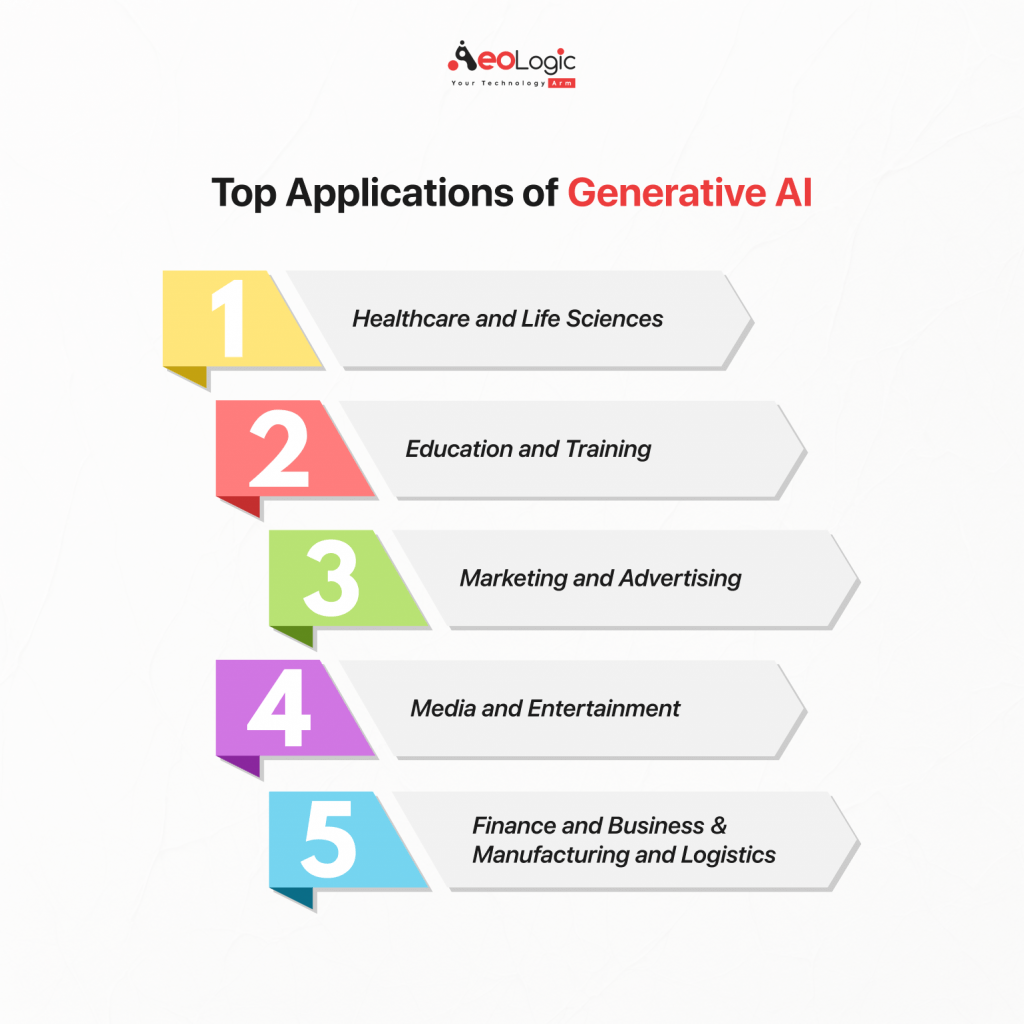
Generative AI is changing many industries by improving efficiency and introducing new ways of doing things. Its uses are vast, from automating tasks to creating innovative solutions in fields like healthcare, education, and business.
Healthcare and Life Sciences
Generative AI helps discover new drugs by simulating how molecules interact. It creates fake patient data for research without risking privacy. The technology also supports personalized treatment plans by analyzing genetic information. For example, it can predict protein structures, speeding up complex biological studies.
Education and Training
In education, generative AI creates customized learning materials like quizzes and study guides based on a student’s needs. AI-powered virtual tutors give real-time help, making quality education more accessible. In corporate training, it develops interactive simulations and role-specific content to help new employees learn faster and improve skills.
Marketing and Advertising
Generative AI helps companies create ads tailored to customer preferences and behavior. It produces social media content like text, images, and videos to connect with the right audience at the right time. AI-powered chatbots improve customer experience by answering questions and giving product recommendations.
Media and Entertainment
In entertainment, generative AI creates lifelike visuals, animations, and sound effects for games and movies. It helps with video editing by adding or modifying scenes and even generating entire environments. AI tools also personalize viewer experiences by creating content like trailers and summaries.
Finance and Business
In finance, generative AI improves financial models by simulating market conditions and identifying risks. AI chatbots handle customer inquiries effectively, mimicking real conversations. Businesses use it to automate the creation of reports and contracts, saving time and reducing errors.
Manufacturing and Logistics
Generative AI designs better prototypes, reducing material costs and waste. It predicts machinery breakdowns using real-time sensor data, preventing delays. In logistics, AI improves route planning and supply chain management, leading to faster deliveries and lower costs.
Examples of Generative AI Tools and Use Cases
Generative AI tools are reshaping industries with their ability to create, predict, and optimize. These tools use advanced algorithms to generate text, images, audio, videos, and even code. Let’s explore some widely recognized generative AI tools and their practical use cases across different fields.
1. Content Creation Tools
Generative AI tools like ChatGPT, Jasper AI, and Copy.ai are transforming content creation for blogs, articles, social media, and marketing campaigns.
Use Cases:
-
- Blog Writing: AI tools generate engaging and SEO-optimized blog content in minutes.
-
- Social Media Management: Automated captions, posts, and hashtag recommendations help businesses maintain a consistent social presence.
-
- Marketing Campaigns: AI tools craft compelling ad copies, email campaigns, and promotional materials tailored to specific audiences.
2. Visual Content and Design Tools
Applications like DALL·E, MidJourney, and Runway ML specialize in generating visuals, designs, and even video editing.
Use Cases:
-
- Graphic Design: Designers use these tools to create unique visuals for branding, product packaging, or promotional materials.
-
- Video Editing: AI tools assist in scene enhancement, background changes, and animation generation for movies or advertisements.
-
- Art Creation: Artists leverage generative AI to produce digital art based on custom prompts, saving time and encouraging creativity.
3. Healthcare Tools
Tools like DeepMind AlphaFold, IBM Watson Health, and BioGPT are utilized for healthcare and life sciences.
Use Cases:
-
- Drug Discovery: AI tools simulate molecular interactions to identify potential treatments and reduce the time for drug development.
-
- Medical Imaging: AI-generated synthetic data helps train diagnostic systems, enhancing accuracy in detecting diseases.
-
- Personalized Medicine: AI recommends treatments by analyzing patient data, genetic sequences, and health history.
4. Education and Training Tools
Platforms like Khan Academy’s AI Tutor, Duolingo Max, and custom AI-powered tools are enhancing education.
Use Cases:
-
- Personalized Learning: AI tutors provide interactive, real-time feedback tailored to individual student needs.
-
- Corporate Training: AI generates simulations for onboarding, role-playing, and skill development.
-
- Study Guides and Quizzes: Automated creation of subject-specific quizzes improves learning efficiency for students.
Also Read: Top Use Cases of Generative AI in Enhancing Customer Experience
5. Marketing and Customer Engagement Tools
AI platforms such as HubSpot AI, AdCreative.ai, and Persado are redefining marketing strategies.
Use Cases:
-
- Ad Campaign Optimization: AI generates and tests ad variations to identify the most effective version.
-
- Customer Service: AI chatbots like Zendesk AI handle customer queries, reducing wait times and improving satisfaction.
-
- Product Recommendations: Retailers use generative AI to analyze customer behavior and suggest relevant products, boosting sales.
6. Media and Entertainment Tools
AI tools like Runway ML, DeepArt.io, and Wombo play a significant role in creating engaging content for entertainment.
Use Cases:
-
- Animation and Gaming: AI generates realistic characters, environments, and sound effects for immersive experiences.
-
- Personalized Content: Platforms like Netflix and Spotify use AI to generate personalized recommendations based on user preferences.
-
- Content Summarization: AI tools create trailers, summaries, or highlight reels for movies and TV shows.
7. Finance and Business Tools
Tools like OpenAI Codex, SymphonyAI, and Kensho streamline financial and operational processes.
Use Cases:
-
- Risk Prediction: AI models simulate market scenarios and predict financial risks, aiding better decision-making.
-
- Document Automation: AI generates reports, contracts, and invoices, reducing manual effort and errors.
-
- Customer Support: AI chatbots mimic human interactions to resolve queries quickly and efficiently.
8. Manufacturing and Logistics Tools
Generative AI applications like Siemens Mindsphere, Bright Machines, and NVIDIA Omniverse optimize manufacturing and logistics.
Use Cases:
-
- Prototyping: AI designs efficient prototypes, minimizing material use and production costs.
-
- Predictive Maintenance: AI analyzes sensor data to forecast machinery issues, preventing downtime.
-
- Route Optimization: Logistics companies use AI to plan efficient delivery routes, reducing fuel costs and improving delivery times.
9. Gaming Tools
Tools like Unity ML-Agents, AI Dungeon, and OpenAI Codex are reshaping the gaming experience.
Use Cases:
-
- Game Development: AI creates dynamic storylines, environments, and characters, reducing development time.
-
- Interactive Gameplay: AI adapts gameplay based on player decisions, offering a unique experience.
-
- Game Testing: Automated testing of game mechanics and scenarios ensures better quality before launch.
10. Legal and Compliance Tools
Generative AI tools like Harvey AI, Ross Intelligence, and LexisNexis AI are improving legal practices.
Use Cases:
-
- Contract Drafting: AI tools automate the creation of legal documents, ensuring consistency and reducing errors.
-
- Legal Research: AI quickly summarizes case laws and legal precedents, saving hours of manual work.
-
- Compliance Monitoring: AI tools generate reports to ensure businesses adhere to regulatory standards.
Benefits of Generative AI for Revolutionizing Industries This Year
So we have seen a lot of information related to the topic. Now it’s time to see some benefits of generative AI for revolutionizing industries this year. Here are a few mentioned below.
Operational efficiency
There are many operations in various industries, like testing of products, prototype making, analyzing performances, etc., that take too much time with the manual ways of managing these operations. Where generative AI can create prototype products in a few minutes that could help with testing within possible conditions. This could be very beneficial for industries like manufacturing, businesses, etc.
Enables customization
Every industry wants their products should be customized on the basis of customer demands and according to needs, but this is quite a tough task, as this is not easy to bring unique ideas. Where Gen AI can offer a lot of customization designs, details, etc in a few seconds as it just takes to put demands in text as input. For example, the fashion industry can get a lot of customized options with the gen AI by analyzing trending patterns.
Personalization
Every industry asks for personalization to help them to make more impact than generalization. But it is very difficult to offer personalization to each one, as it takes time and human labor too. With generative AI, personalization can be achieved as healthcare industries can develop medicine on individual treatments, education can provide the understanding of an individual, clothes can be made on the basis of individual looks, etc. All these can be done by Gen AI in a few minutes, which is surely going to revolutionize industries at a next level.
Scenario planning
This is very important to plan for every possible condition as you prepare for any challenging phase. Industries can do these with generative AI, as this technology virtually creates the scenarios and their outcomes. Also, this technology has the potential to provide solutions and prevention ideas that definitely evolve the industries in a very incredible manner.
Cross-disciplinary innovation
Innovation is very important, and just not innovation; unique innovations are very crucial, as this shows the thinking ability of industries. Cross-disciplinary innovation is a thing that could be one of the greatest benefits of Gen AI, as it involves bringing ideas from different industries and integrating them to create a new innovation. This is never possible with the traditional methods and techniques.
Also Read: The Role of Generative AI in Mobile Application Development
Challenges with Generative AI
So now we have to see some challenges with generative AI, as there are a few mentioned below that can interrupt the implementation or use of this technology.
-
- Misinformation spreading is a very shameful challenge with gen AI, as there are many cases worldwide of spreading wrong pictures and videos of individuals that affect their lives very badly.
-
- Greater resource demands can be another challenge, as taking full benefit of Gen AI takes great computational resources like GPUs or TPUs that could be very costly.
-
- Transparency is another challenge, as many industries cannot know on which basis gen AI works due to its black-box nature.
Also Read: Generative AI for Predictive Maintenance in Industrial Operations
Final Words
There is not a single doubt or question about generative AI capability, as the world already knows its potential and its power to revolutionize the world for the future. Gen AI is revolutionizing many industries, as mentioned earlier, like healthcare, manufacturing, education, marketing, retail, agriculture, fashion, etc., which are overall good for global market development and customer convenience.
Like other technologies, this also possesses some challenges, like cost, lack of transparency, misuse, interoperability issues, etc., but one cannot ignore the benefits in front of these challenges. Overall, industries will adopt this technology in 2025 as they will surely find the solutions to the mentioned challenges. This takes them to a new height till the end of 2025 and also advances them to the future with a better evolution.
FAQs
How is Generative AI influencing marketing and advertising strategies in 2025?
To see how Generative AI is changing the marketing and advertising landscape in 2025, it is first helpful to think about what Generative AI is all about. Generative AI is simply advanced algorithms that create new content—text, images, videos, or even music—based on patterns that exist in existing content data.
With marketing, Generative AI is automating personalized ad messaging, social media posts, email campaigns, product descriptions, etc. For example, a marketer could send hundreds of individual emails to different customer segments, or with Generative AI, the marketer can create personalized messaging that speaks directly to those groups behavior and preference.
Unlike older traditional marketing based on manual content creation and blind guessing, Generative AI uses real-time customer data and models to optimize messages. That means campaigns can adapt instantaneously based on customer response, which will make marketing and advertising processes more efficient.
Overall, Generative AI is fundamentally changing marketing by automating creative processes using Generative AI, increasing personalization at scale, and being data-driven in decisions by optimizing campaigns in real-time—thus allowing brands to create more meaningful connections with their target consumers, scalable to mass audiences.
How is Generative AI reshaping the finance and banking industry?
Generative AI in finance and banking uses smart algorithms to analyze data and create insights automatically. It helps detect fraud faster by spotting unusual patterns and provides personalized financial advice based on customer behavior.
Unlike older systems, it learns and adapts over time, making banks more responsive to changes. It also automates routine tasks like generating reports or emails, so employees can focus on more important work. In short, Generative AI makes banking smarter, faster, and more customer-focused.
How does Generative AI improve efficiency in manufacturing and production?
Understanding how Generative AI will increase manufacturing efficiencies means having a sense for what AI does. AI uses advanced algorithms to process complex data and generate intelligent solutions to optimize processes. Generative AI produces intelligent solutions and efficiencies in a variety of processes whether that be designing a part, scheduling maintenance, or monitoring quality of production in real-time.
For instance, machines in a factory produce large amounts of data about performance and wear. Generative AI has the capacity for learning from the vast amount of data and predicting when a piece of equipment will fail, enabling maintenance personnel to repair issue prior to failure. The advantage of AI solutions is that minimizing equipment downtime will enable greater continuity of operations on the production line.
Traditional processing of data often involves human experts; they analyze the data manually, which tends to be slow and relies on human experience and a human process to detect hidden patterns. Unquestionably, the efficiency for this processing will be improved, and the algorithms of generative AI can identify hidden patterns that humans may miss. Moreover, generative AI will assist with designing better products by producing multiple design paths from sets of parameters, therefore increasing the rate of innovation.
In what ways does generative AI enhance healthcare services?
Generative AI enhances healthcare services in several impactful ways:
- Customized Treatment Plans: Generative AI can mine patient data to create individualized treatment plans suited for a person’s specific needs. This can lead to better health outcomes, as patient care can be tailored to an individual’s health history.
- Medical Imaging and Diagnostics: AI models provide detailed analyses of medical images (X-ray, MRI, CT scans), which can provide doctors with rapid and high-fidelity information about any problems with the images.
- Drug Discovery and Development: Generative AI speeds up the ability to develop new drugs, by predicting molecular structure, band generating simulations of interactions. The practical result is less time and money spent on research and development.
- Virtual Health Assistants: AI powered chatbots and virtual assistants can take care of regular queries, appointment scheduling and self-diagnosis to engage with patients, while moving repetitive tasks off docs plate.
- Clinical Documentation: Generative AI can extract context and automate writing medical reports/notes enough that doctors can spend significantly more time caring for people than producing notes and documentation of clinical care.
- Predictive Analytics: Generative AI can help models and forecast disease outbreaks, predict patient admissions or readmissions and engage busy doctors or health analysts in knowing people’s true health status and needs.
How Is Aeologic Technologies Leveraging Generative AI for Industry Solutions?
Aeologic Technologies develops generative A.I., to build custom concepts, to automate tasks, improve decision making, and improve customer experiences convincingly across most industries like healthcare, retail, or manufacturing. They enable businesses to be more efficient with AI functionalities, assess and improve their innovation capabilities, and regulate what they need to survive in 2025’s ever-changing market landscape.

